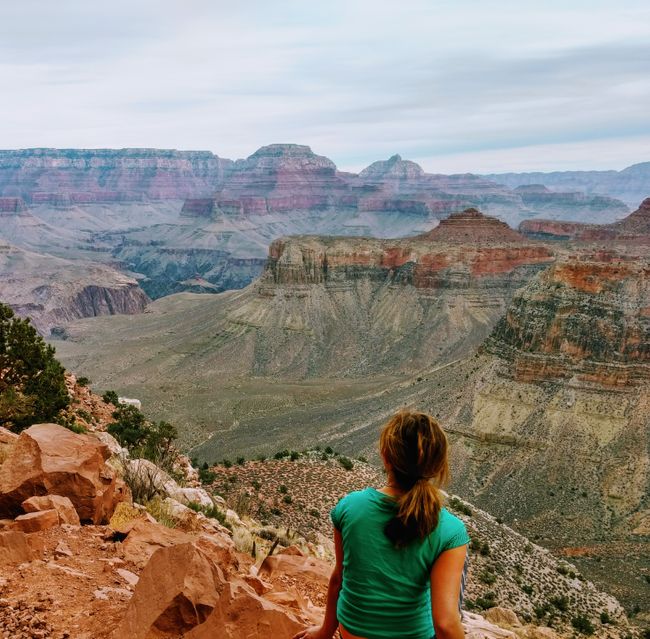Spirituality in Chiang Mai
પ્રકાશિત: 17.01.2019
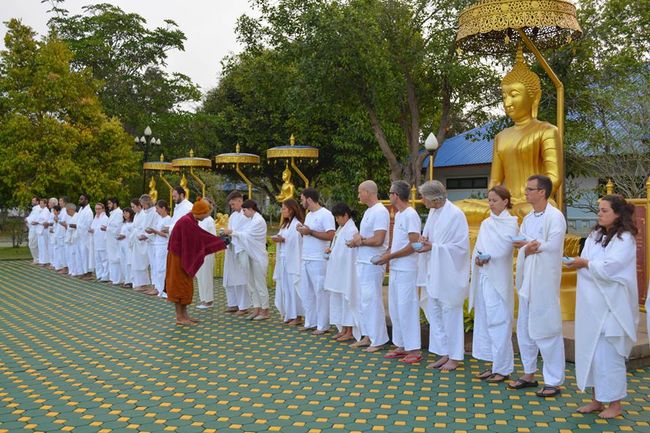
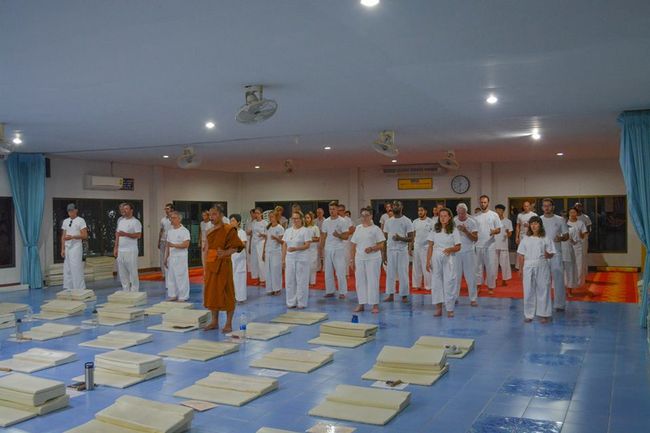
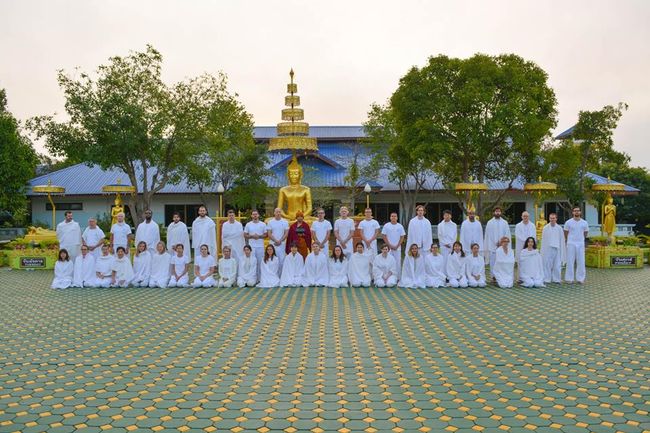
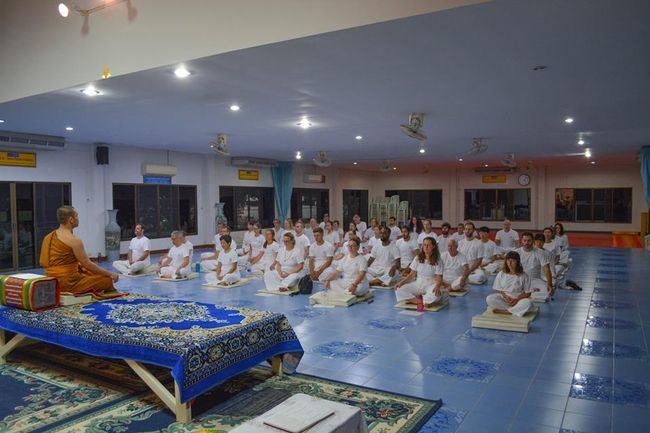
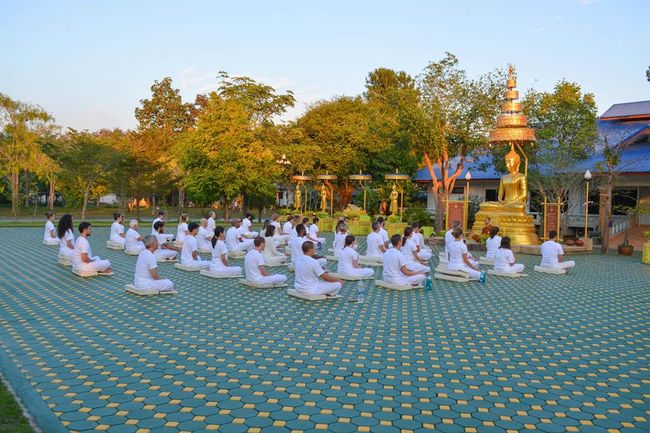
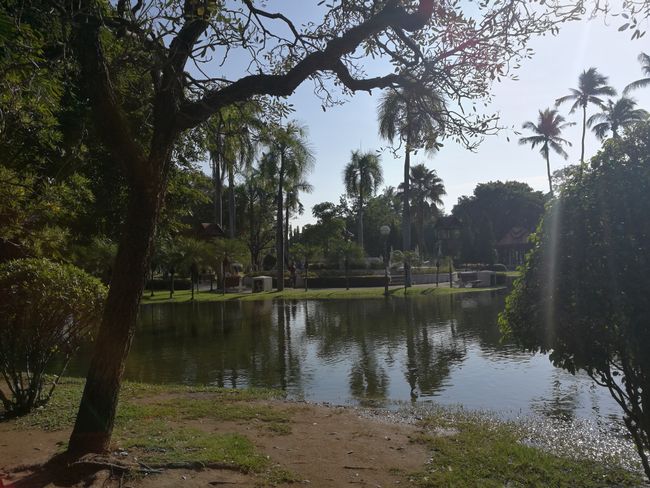
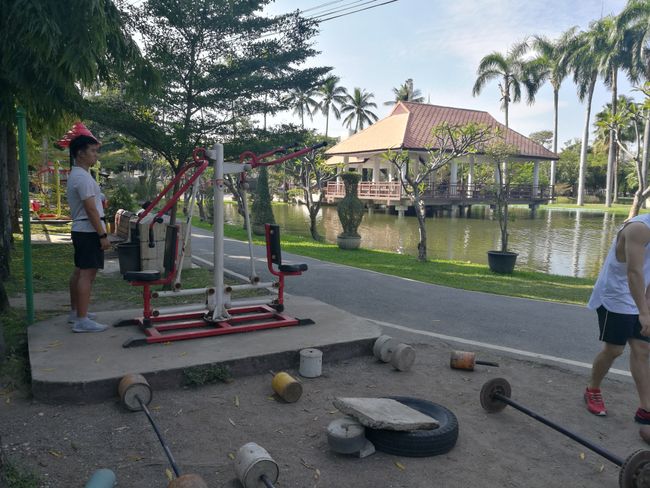
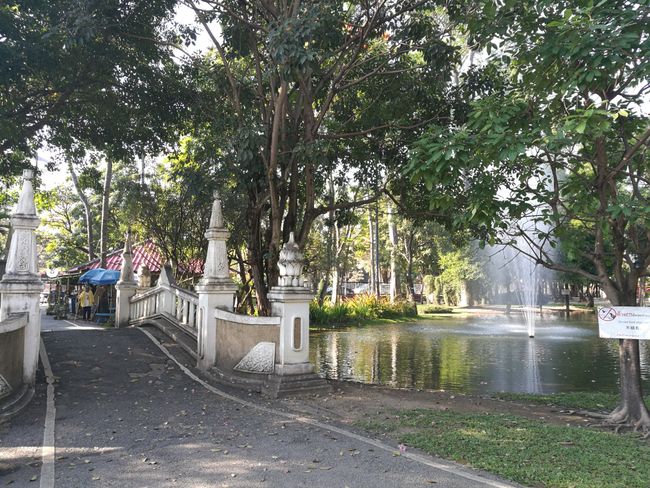
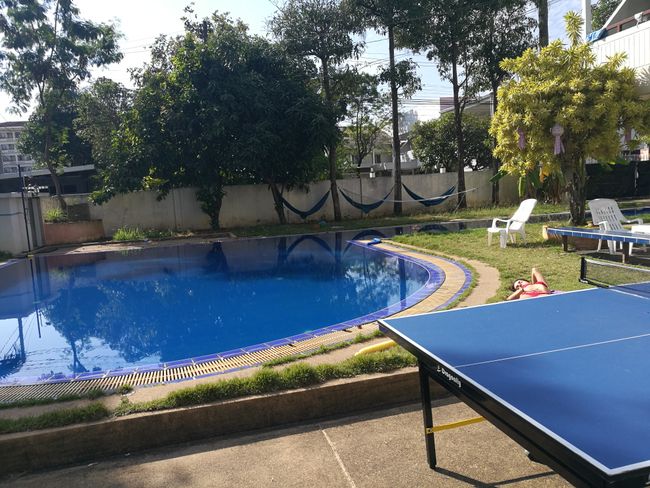
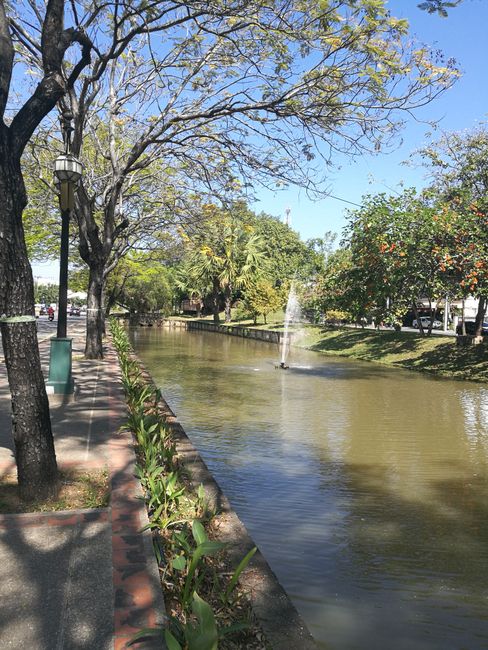
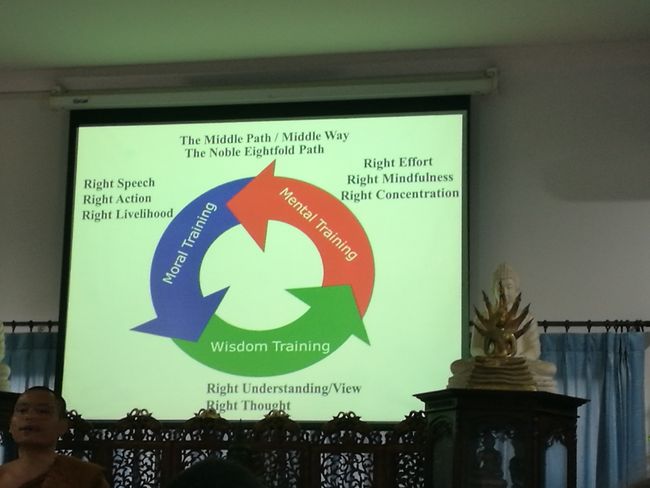
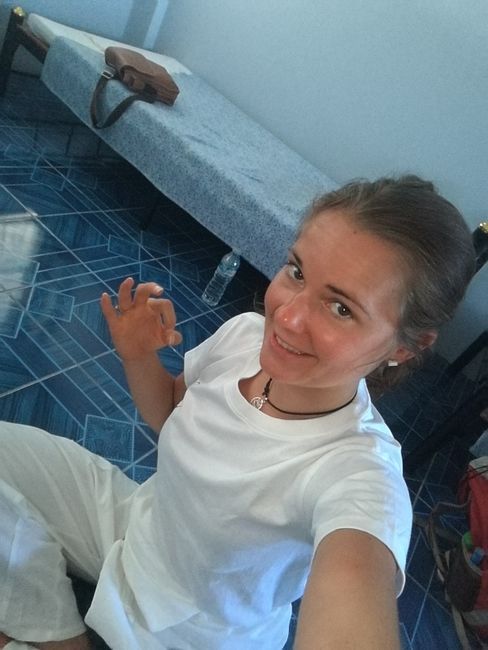
ન્યૂઝલેટર પર સબ્સ્ક્રાઇબ કરો
Warm greetings from the wonderful Chiang Mai to Europe. Before I get into the details, I have to confess a secret to you! I can't keep it to myself any longer because I am so happy. That's why I'm officially announcing: I'm in love.
It started like any good love story, unexpectedly and surprisingly. My new love was just there when I got off the plane, welcoming me after a long day with the perfect mix of calmness and excitement, with a soft song on her lips. Her clothing had the best combination of colorful lights and dark colors, her temperature was perfect, allowing me to breathe easily with a slight shiver. Her taste is uniquely good, even my grumbling stomach couldn't resist, and her skin is incredibly beautiful, covered with parks, jogging tracks, and mountains. But what captured my heart the most was her smile. It radiated genuineness and warmth, like I hadn't seen since the beginning of my journey. That's when I knew: I'm deeply in love! With none other than the northern Thai city of Chiang Mai.
Yes, I know what you're thinking, now Kathrin is exaggerating with her poetic ramblings. But I really want to share my great happiness in this wonderful city with you. Honestly, I didn't have much of an idea about Chiang Mai and hoped it would suit me better than Koh Lanta. And as often happens when you manage to let go of your expectations: I was absolutely positively surprised. I felt comfortable right from the arrival at the airport, certainly also because the night was 'finally' somewhat cool (about 18 degrees Celsius) and I could breathe. Tired, I walked out of the airport with my backpack and immediately felt the desire to explore the city despite the late hour. So despite the heavy backpack (at this point, a thousand thanks to my dear friend Mara who lent me the very comfortable backpack; if I hadn't crammed it with too much unnecessary stuff, it would have been even more comfortable to carry ;) ), I walked through the city at night instead of getting into the first taxi, heading towards my hostel (at this point, an incredibly big thanks to Google Maps :D). I immediately felt comfortable and safe, the Thais I encountered here in the middle of the night actually smiled warmly at me, offered to accompany me on my walk, or even a ride to the hostel, and seemed to be enjoying life. I passed by authentic live music and bars where the Thais seemed to really feel joy and celebrate. After 2 weeks of feeling like I was annoying the locals, you can't imagine how beautiful and relieving it feels to be smiled at on the street and greeted with interest. A northern Thai woman told me that this is by no means just a subjective impression. Thais in the south are generally known (even among Thais, not just because of the tourists) for being unfriendly, while in the north, people are much warmer. Here in the north, it feels like even fewer Thais speak English, but you can still feel how easy it is to communicate with hands and feet if you want to.
Even my hostel is beautiful. A huge pool (which is very useful here because there is no sea), hammocks everywhere, 'small' rooms (with only 6 people per room), and very friendly hosts invite you to spend the whole day here. Thank goodness Chiang Mai is so beautiful that I do leave the hostel sometimes. This northern gem of Thailand with just under 150,000 inhabitants seems to be made for me. Here, you can ride a bike, there are sidewalks and a cute canal where you can jog. As I trotted around in a park, to my great surprise, I found a lot of exercise equipment that you can use for free and countless Thais who were jogging in the park, doing strength training, or even attending guided fitness classes there. With so much exercise, I can only feel good! Furthermore, Chiang Mai is much cheaper than southern Thailand. Countless small food stalls and cute restaurants offer very good food for little money. Fortunately, my stomach can tolerate it again without any aversion, and with so many positive vibes, the healing happened naturally. By the way, do you know Pad Thai? The typical Thai dish, it's a kind of fried noodles with vegetables, meat if desired, and great spices. Very, very tasty, I can only recommend it. And another fact about food in Thailand: as a person with little motor skills, I had some fears of starving here because I thought you could only eat with chopsticks. I know, it's not that difficult... but ask my Saarbrücken girls, despite lots of practice, I still can't do it. Fortunately, I'm not starving here anyway because of a fact about Thailand that was unknown to me before: Here, people eat almost everything with a fork and spoon. Lucky me ;).
But back to raving about Chiang Mai, a few more nice facts so that you don't think I just fall in love with everything. Since the focus here is more on culture, spirituality, and hiking in the mountains than in the south, I am much more in tune with the people I meet here compared to the party beach vacationers. People who come here consciously choose Chiang Mai instead of just any beautiful island and are therefore interested in life issues such as spirituality, just like me. But now onto spirituality, I absolutely have to tell you about my two-day monastery stay here in Chiang Mai, which marked the beginning of my journey to northern Thailand. Unfortunately, there are hardly any pictures of this because mobile phones were taboo and we were supposed to focus on ourselves instead of the outside world. But I can express myself in words ;), so I'll try to describe a little bit what I experienced: After other travelers recommended these spiritual days to me, I spontaneously booked the monastery stay in Koh Lanta for immediately after my arrival in Chiang Mai (this type of stay is offered only once a week in this form, so I booked quickly). It started in a Buddhist temple where a young monk told us about Buddhism and his life as a monk. It was super exciting, especially because I really liked the monk's attitude (and that of many Buddhists). No one expected any of us (we are 45 meditation enthusiasts, all Westerners) to convert to Buddhism, give up our religion, or believe in any doctrine. Rather, we were made to understand that Buddhism is more of a philosophy, a way to find a life balance that anyone (Christian, Muslim, Jew, Hindu, Atheist, ...) can live, or not. In Buddhism (and also in my opinion), the root of all problems is seen as imbalances. Imbalances between work and relaxation, between taking and giving, between movement and rest, between talking and silence, between different people, ... all lead to mental and physical problems. Buddhism aims to free people from this suffering, from these imbalances, by encouraging them to 1. Do good and avoid evil (e.g. not killing, which also means no animals -> no eating meat, but also not even crushing an ant); 2. Train their minds (especially through meditation); 3. Find wisdom.
During our retreat, the focus was specifically on the second point, meditation. Meditation, this modern trend in society, why do people do it at all?! Just because it's cool? According to Buddhist philosophy, absolutely not, there is much more to it. Meditation is much more a path that leads to happiness by teaching us to accept everything in life, especially suffering. Suffering, why should we accept this nonsense? Because suffering is a part of life for everyone, even though so many of us want to deny it and make everything seem beautiful. Everyone suffers again and again, every day anew: mentally, physically, and emotionally! Nothing in life is permanent, everything changes, we get older, less beautiful, lose our strength. We lose possessions, other people, and qualities that our ego believes it possesses. Only when we learn to accept these losses and let go of them through meditation, do we find freedom from suffering according to Buddhism. This is a very brief and probably not completely correct summary, but it should give you an idea of what meditation can be used for.
After this theoretical introduction to Buddhism, we were all dressed in white clothes that were supposed to cover our figures, and then we were taken to another temple on a mountain to practice meditation. What did it look like? First of all, we were asked to remain silent for 2 days. For me, this was already the best part: having permission to just be with myself, without having to be nice to other travelers and without socializing, a dream come true. It is very touching how much closer you are to yourself when you simply keep quiet and don't feel the need to be nice to everyone and present yourself as best as possible through facial expressions and gestures. It's a shame that I need official permission to be quiet and stop being nice, instead of allowing myself that in everyday life as well. However, besides silence, which apparently wasn't easy for many, we also learned meditation practices and the theory behind them. For example, sitting meditation, where you simply focus on your breathing and let all thoughts and feelings pass by. You observe what comes up but let it go by staying focused on your breathing. It sounds very simple, but it’s not. It is hard work to constantly refocus on the breath because the mind (especially mine) constantly prefers to think about other things and speculate about the future instead of focusing on the present moment. During this sitting meditation, I learned a lot for myself: Actually, we are all 'nothing' or 'everything'. We are only what breathes. All the feelings and thoughts and physical sensations that arise during meditation pass quickly and are impermanent. The chaos of thoughts and emotions is not really us, they are just stories that our mind tells and perceptions that are not lasting but are made up by our ego. When you observe thoughts and feelings without judgment, they are not really bad. They don't change the 'self' that is simply sitting and breathing, they are simply temporary phenomena that we don't need to follow so intensively. This may sound very philosophical and a bit disconnected, I know, but I have to share my new realization here. It's just a shame that realization and implementation are so far apart. So I probably have to practice a lot to internalize my new insight and to stay calm with all feelings and thoughts. Our monk (Phra KK) recommended meditating for at least 20 minutes in the morning and 20 minutes in the evening to feel sustainable success. I am determined to do that because meditation can really destress and allow you to distance yourself from everything. Will I succeed? Please ask me regularly so that I have the motivation to keep going. We also learned meditation in a lying position. A good tip if you can't sleep and are plagued by inner restlessness: just lie down and focus only on the rising and falling of your abdominal wall. When thoughts come, lovingly redirect your attention back to the abdominal wall. It sounds easy, but it’s not. Try it for 20 minutes and you will be more relaxed afterwards (if not immediately, then at least after practicing a few times :D). You can also meditate while walking: Phra KK showed us how to mentally recite every step we take and then consciously feel how the foot lifts, touches the ground, etc. When you move like this (which is actually very slow, completely against my nature), you are super focused and present, thus slowing down everyday life. Meditation can also be done while eating and drinking. Before each meal we had in the monastery, we recited a few sentences that were supposed to make us conscious of gratitude for the food. We also realized that eating is necessary to nourish the body and that we should consciously allow ourselves to eat, but not just eat more than the body needs out of fun and pleasure. We eat and drink to live, we do not live to eat, according to the Buddhist view it is best to take in food. On the one hand, I think this thought is great, especially to avoid feelings of guilt and greed when eating. We simply need food to a certain extent, so we don't need to condemn ourselves for being hungry, but instead allow ourselves food. However, for excessive eating out of frustration and boredom, one should look for more adequate, alternative means. On the other hand, I find it a bit sad about this approach that the enjoyment that food can also cause is not really allowed to be the focus. According to the monk, when one enjoys eating too much, one also becomes somewhat dependent on that pleasure, which is not good and causes suffering when the pleasure is absent. I still have to think about this view... What was fascinating, however, was eating in complete silence, consciously and slowly, being aware of every bite and feeling how it nourishes you. Especially when, like me, you usually watch TV or play on your phone while eating alone, this is a special experience that makes you appreciate your food more.
We meditated until 10 p.m., then we were sent to bed (beautiful double rooms, but with even harder mattresses than the ones in Thailand in general) to continue meditating at 5 a.m. the next morning. Gross, as a passionate late sleeper, I had the most difficult time with waking up early, especially since I didn't sleep very well in the monastery... But apparently, the early morning hours are the best for meditation, the world is still quiet and you can focus best. Well, that may be true for people who don't have to fight immense sleep pressure. In addition to the morning meditation, we also learned communal chants, in the form of 'mantras'. We sang along with the monks in words we didn't understand, which I liked very much and it also required so much concentration that the mind couldn't just wander aimlessly. So simply singing to focus, and in a community, it creates a goosebump atmosphere when everyone joins in. Before breakfast, we donated food to the monks. Did you know that Buddhist monks are only allowed to eat once a day? And only what the community donates to them. So Buddhist monks always go out at 7 a.m. to collect food from willing donors in the community. However, they are not allowed to directly ask for food, either it is given to them willingly or they simply have bad luck and have to go hungry. On this day, the monks were lucky that there were so many meditators who gave them food. At breakfast in the monastery, I couldn't avoid having rice soup in the morning for the first time during my stay. I'm generally not a big soup fan, and for breakfast?! At first, I thought I would never be able to eat it, but it tasted surprisingly good. Another thing I've learned, to try more culinary things instead of rejecting them from the start. Throughout the day, we did 30-minute meditation sessions in sitting, walking, standing, singing, or lying positions and had to focus our minds. I repeatedly reached my limits, my mind preferred to do other things and avoid meditation. I kept wondering how I managed to survive 10 days of Vipassana meditation without going crazy. Nevertheless, the hard work paid off, and I felt much more relaxed and focused afterwards. I really hope I can incorporate some of the new insights and practices into my everyday life. Besides the actual meditation, the camp was also great for meeting interesting people. Not only the monks, whom I would love to tell you more about, but unfortunately, due to time constraints, I will postpone that. Even the meditators themselves all had fascinating stories and were looking for answers, mostly arising from their own life crises or dissatisfactions. So I met interesting family fathers or mothers who had the courage to quit their jobs and travel alone for self-discovery purposes, leaving their families behind. Other young people meditated in the midst of burnout to find their purpose in life, while others came to find out if a breakup was the right choice for them or how they could change their relationship. Super exciting, I haven't had such great conversations in a long time, like on the way back from the monastery. And then there was also Connor at the meditation camp, who I convinced to participate in the camp after a few messages. It's great to see him again and to have someone with whom I can be more myself than with most other travelers I meet. He gives me a sense of stability and familiarity that I desperately need after over 2 weeks of solo traveling. We also met two other interesting people who we got along with so well that we made plans to have dinner together after the meditation. The conversations during this dinner filled me so much, unlike most other travelers: It was about the meaning of life, love, our emotional pain, problems, joys, religion, the search for meaning, etc. Finally, something other than just talking about travel destinations, home country, and excursion tips (which is also very important but doesn't fulfill me so deeply). With these cool people, I will explore Chiang Mai a bit more intensively by scooter, of course sitting on the back as a passenger, thanks to Connor. Therefore, I will put an end to my novel here and send all of you lots of love. Try meditating for at least 10 minutes today :). Content
ન્યૂઝલેટર પર સબ્સ્ક્રાઇબ કરો
જવાબ આપો (1)
Madelaine
Hallo :) mir hat dein reisebericht sehr gefallen und ich wollte Fragen wo du dies gebucht hast und wie zufrieden du dort warst? Überlege selbst nach thailand zu gehennund sowas zu machen. Liebe Grüße Madelaine 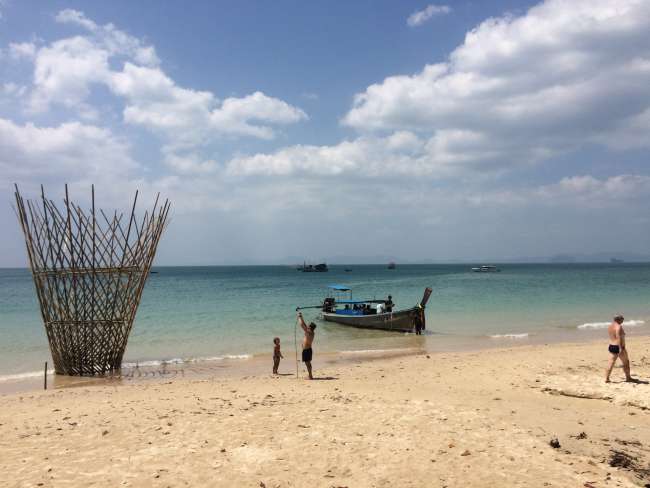
મુસાફરી અહેવાલો થાઈલેન્ડ

